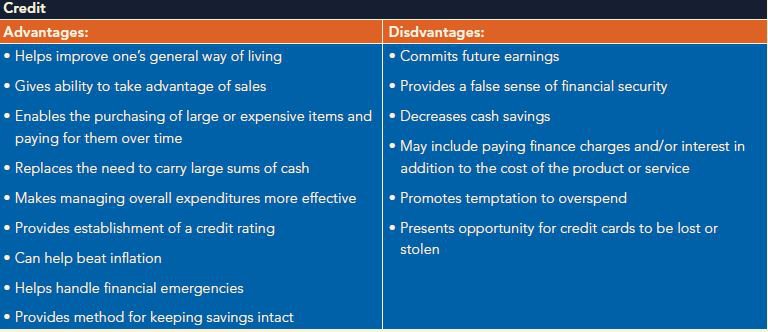Hybrid Line of Credit: Flexible Financing Options from Your Wyoming Credit Union
The Ultimate Overview to Recognizing Lending Institution

Credit history unions stand as unique financial entities, rooted in principles of mutual assistance and member-driven operations. As we browse through the complexities of credit rating unions, an informative trip awaits to lose light on these member-focused organizations and just how they differ from typical financial institutions.
What Are Debt Unions?
Credit unions are member-owned banks that use a series of financial services to their members. Unlike typical banks, lending institution run as not-for-profit companies, indicating their key focus is on offering their participants instead of making the most of profits. Members of a debt union normally share an usual bond, such as benefiting the very same employer, belonging to the exact same neighborhood, or belonging to the very same organization.
Among the key benefits of cooperative credit union is that they often supply greater passion prices on interest-bearing accounts and reduced rate of interest on fundings compared to banks. Credit Union in Wyoming. This is due to the fact that cooperative credit union are structured to benefit their participants straight, enabling them to pass on their profits in the form of far better prices and fewer costs. Furthermore, credit unions are recognized for their customized customer care, as they focus on developing relationships with their participants to recognize their one-of-a-kind economic requirements and objectives
Background and Development of Credit Score Unions
The origins of member-owned monetary cooperatives, understood today as credit score unions, trace back to a time when neighborhoods sought choices to standard banking organizations. The concept of lending institution come from in the 19th century in Europe, with Friedrich Wilhelm Raiffeisen frequently credited as the leader of the cooperative banking activity. Raiffeisen founded the initial acknowledged cooperative credit union in Germany in the mid-1800s, stressing neighborhood assistance and self-help concepts.
The development of credit scores unions proceeded in North America, where Alphonse Desjardins established the initial lending institution in Canada in 1900. Shortly after, in 1909, the very first U.S. cooperative credit union was developed in New Hampshire by a team of Franco-American immigrants. These very early lending institution run on the fundamental concepts of common support, autonomous control, and participant possession.
In time, lending institution have grown in appeal worldwide as a result of their not-for-profit framework, focus on serving members, and supplying affordable financial services and products. Today, lending institution play a crucial function in the economic sector, giving easily accessible and community-oriented financial alternatives for people and organizations alike.

Membership and Qualification Requirements
Subscription at a credit score union is generally limited to people satisfying certain qualification requirements based on the establishment's founding concepts and regulatory needs. Some credit score unions might only serve individuals that function or live in a specific area, while others might be customized to staff members of a particular business or members of a particular association.
Additionally, lending institution are structured as not-for-profit companies, implying that their primary objective is to offer their participants as opposed to generate earnings for investors. This focus on participant service commonly equates into even more tailored focus, reduced costs, and affordable rates of interest on savings and fundings accounts. By fulfilling the qualification criteria and coming to be a member of a credit scores union, individuals can access a variety of monetary services and products tailored to their certain demands.
Solutions and Products Offered
One of the key elements that establishes credit report unions apart is the diverse variety of monetary solutions and items they supply to their members. Credit score unions typically provide conventional banking services such as savings and inspecting accounts, finances, and credit score cards.
In addition, credit unions usually give hassle-free online and mobile banking options for members to conveniently handle their funds. They may use advantages such as shared branching, allowing members to access their accounts at various other credit score unions throughout the country. Some credit report Learn More unions likewise give insurance policy items like life, auto, and home insurance policy to assist members shield their properties and enjoyed look at these guys ones.

Advantages of Banking With Debt Unions
When taking into consideration financial institutions, checking out the advantages of banking with credit rating unions reveals distinct advantages for members seeking individualized solution and competitive rates. Unlike big financial institutions, credit score unions are member-owned and prioritize building strong connections with their participants. In general, financial with a debt union can offer an extra personalized, affordable, and member-centric economic experience.
Conclusion
In final thought, credit report unions stand out as member-owned economic establishments that focus on offering their members over maximizing profits. With beginnings dating back to 19th century Europe, credit report unions comply with principles of shared help and member ownership.
Credit report unions are member-owned economic establishments that supply a variety of banking solutions to their members. The concept of credit unions stem in the 19th century in Europe, with Friedrich Wilhelm Raiffeisen commonly credited as the pioneer of the participating banking movement.The advancement of credit rating unions proceeded in North America, where Alphonse Desjardins established the initial debt union in Canada in 1900. Credit score unions normally supply traditional financial services such as savings and examining accounts, lendings, and credit cards.When thinking about financial organizations, exploring the benefits of banking with credit scores unions reveals here are the findings unique benefits for participants seeking personalized service and competitive prices.